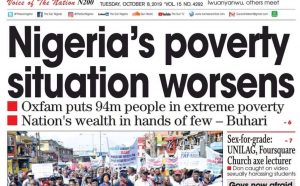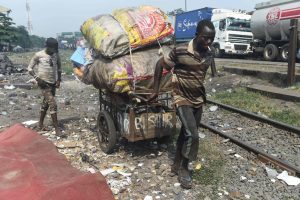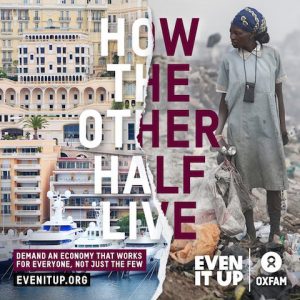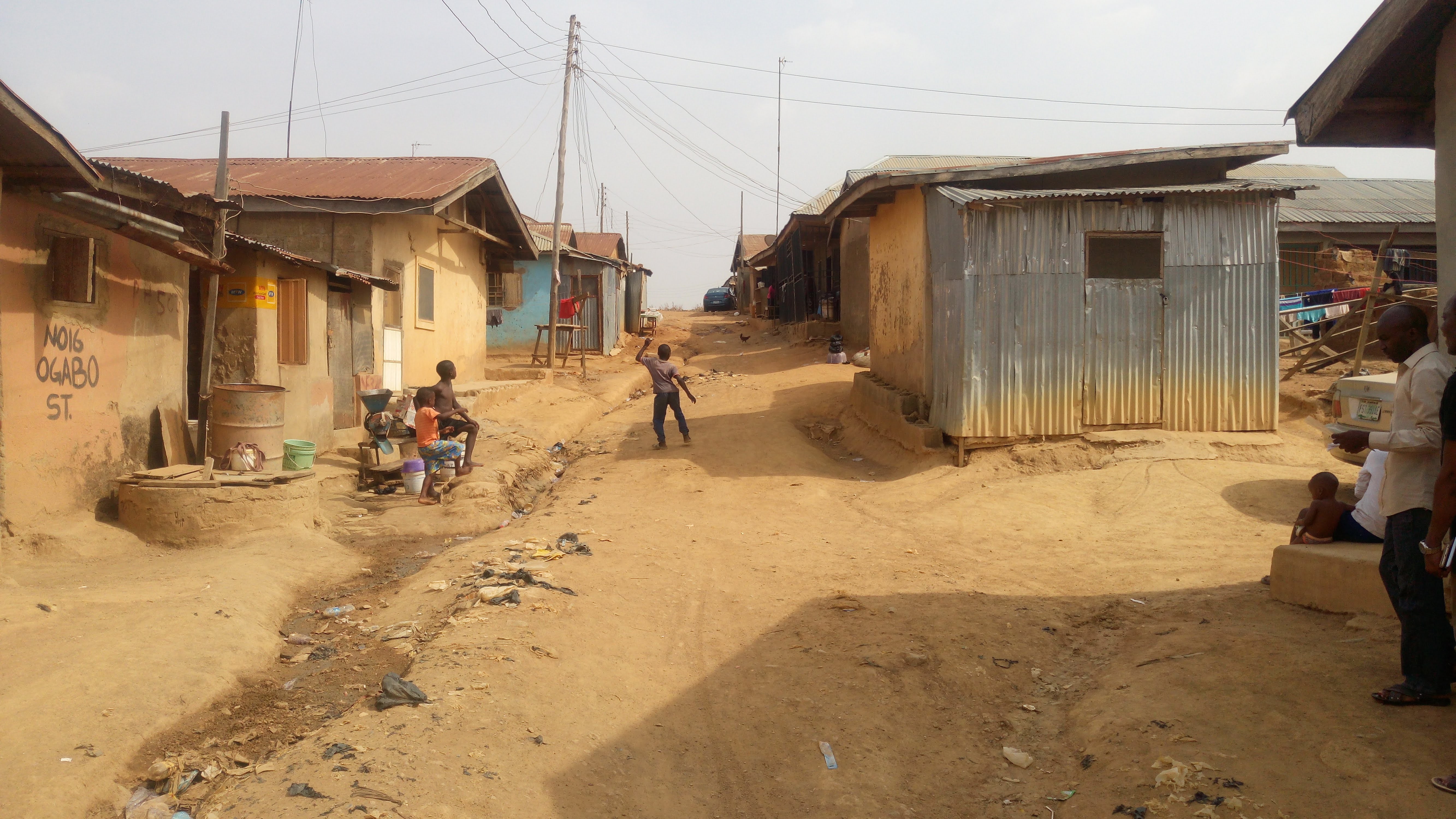The Federal Government of Nigeria has formally acknowledged that there are 90 million Nigerians living in poverty. The figure compares fairly well with those of other institutions concerned with calculating how many people live in and out of poverty such as the World Bank, Oxfam, the World Poverty Clock and even Nigeria’s National Bureau of Statistics, (about the only public institution doing its job with credibility although it seems to have been forced to stop issuing its regular statistics). What is important about the acknowledged figure is how one half of Nigerians live in poverty. In other words, if there are about 200 million Nigerians and about a 100 million of them live in poverty, then half of the most populous African country live a dreary existence.

Is the FGN’s N-SIP the re-distributive strategy the inequality and poverty crisis policy or shall we wait for another?

The face of poverty somewhere in Lagos in this AFP picture in January 2019
The present government did not create that level of poverty but it is expected to have a policy framework that can guide the response to this gargantuan level of poverty. It is open to debate if there has emerged any such holistic framework since 2015. There seems to be more rhetoric and propaganda than a development model that can make a statement in lifting millions from poverty as has been seen in a number of places, including Africa.
Although the data has ruined the theory that links terrorism to poverty, it is still something to worry about that half of the population could be living in poverty in a country of super-abundance. How might this reality have been possible? Elite failure? Leadership failure? Corruption? Foreign control of the economy through SAP and its different variations? prolonged military rule? Questions!, questions and questions?
 Whatever or whichever is the right answer, the question now is how Nigeria might not transform into an incubation ground for monsters with this level of poverty? Is there any guarantee the highly fragmented Nigerian elite can overcome their ethno-regional quarrels and come together to insist on a consensus framework for addressing the risk embodied by poverty? Is there any chance that the media and the larger civil society can agree on a framework for responding to the invitation to anarchy that this level of poverty poses?
Whatever or whichever is the right answer, the question now is how Nigeria might not transform into an incubation ground for monsters with this level of poverty? Is there any guarantee the highly fragmented Nigerian elite can overcome their ethno-regional quarrels and come together to insist on a consensus framework for addressing the risk embodied by poverty? Is there any chance that the media and the larger civil society can agree on a framework for responding to the invitation to anarchy that this level of poverty poses?
Does the possibility exist that Nigeria can, one day soon, tell all the powerful local and foreign interests funding and promoting models of reforming Nigeria such as True Federalism, Restructuring, all aimed at keeping Nigeria weak and unable to fulfill her destiny to get off her back? Without doing so, can Nigeria ever get out of this embarrassing poverty figures?



























